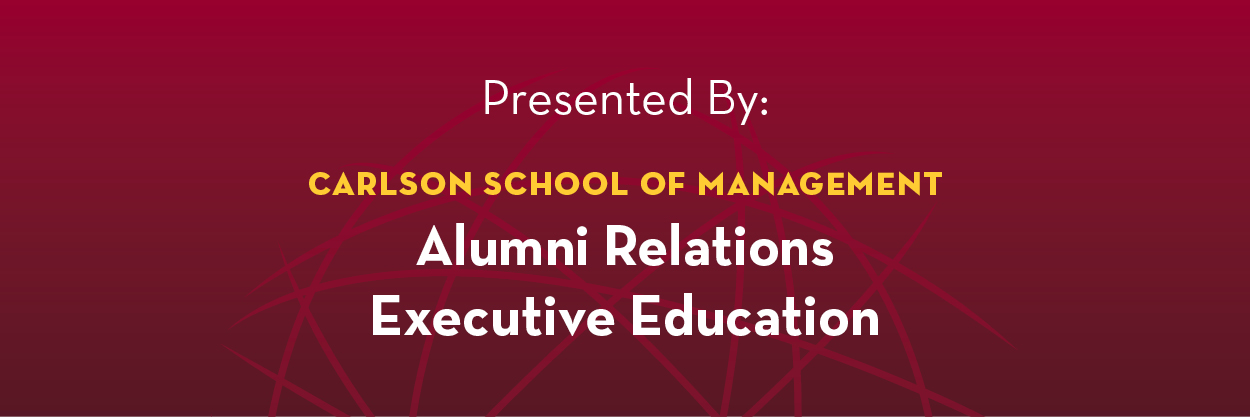
Advancing Diversity, Equity and Inclusion: Key Takeaways
Diversity, equity, and inclusion have been top-of-mind in the business world in recent months with CEOs consistently citing DEI as a key strategic priority and committing to creating more inclusive environments within their organizations. Yet progress remains elusive. We heard from Juliana Batista, Head of Diversity and Inclusion at General Mills, David Edgerton Jr, Managing Principal at The DEJ Group, and Rudy Rodriguez, Vice President, Diversity and Inclusion at Ameriprise, about how they facilitate diverse and equitable hiring practices as well as create inclusive environments where all employees thrive. Watch the recording or get the highlights of their conversation:
DEI Initiatives Should Be Designed for Lasting Impact
Panelists stressed that the challenge of inclusivity belongs to everyone at the organization and that the behavior changes needed for a truly inclusive workplace take time and repetition to adopt.
Creating opportunities to learn and grow beyond one-and-done DEI training sessions are critical for changing behavior. Small interventions and process checks at critical moments such as performance reviews or hiring decisions help remind people what inclusive culture asks of them.
Position Your Organization to Find and Attract Diverse Talent
Even if you’re part of a smaller organization, building a local network of diverse professionals and connecting with employee organizations can help you develop your talent pool. If you’ve not had applications from a diverse slate of candidates, consider widening where you look for talent. Rudy Rodriguez recommends having a clear process in place for sourcing candidates and then having diverse interview panels.
Organizations sometimes blame hiring disparities on talent pipeline issues, but many workplaces aren’t investing in growing the pipeline in the first place. David Edgerton suggests partnering with local non-profits and groups who are working to interest teens and young adults in the career paths you’re hiring for. For many organizations, it makes sense to hire developing talent and help them grow into the roles you’re looking to fill.
Juliana Batista emphasized that offers, benefits, and compensation packages need to be competitive and that it is important that organizations consider how to best bring their culture to life in an authentic way. She added that leveraging employees is a smart way to expose candidates to the company culture in a unique way.
Hold onto Your Diverse Talent with Inclusive Culture
If diverse talent joins a non-inclusive workplace, they will leave. Juliana Batista shared that ensuring diversity of input and perspectives is core to General Mills' business strategy and that commitment from the top drives work throughout the organization, including equipping managers for challenging conversations, advancing inclusion on their teams, and holding them accountable as one of the primary drivers of employee experience at the corporation.
David Edgerton described the difference between mentorship opportunities where the mentor has no real power to help the mentee advance in the organization and sponsorship, where the sponsor has the power to identify and create new opportunities for employees. Mentorship opportunities in companies are demoralizing if they’re unable to link talent to growth opportunities.
Measure Progress and Elevate Visibility of DEI Initiatives
Rudy Rodriguez suggested sharing actions and progress widely within the organization. Leveraging the results of engagement surveys, tracking hiring numbers closely, and making sure leaders are aware of trends is also important. Juliana Batista indicated that increasing transparency and sharing representation data is important to drive change. David Edgerton mentioned that small and mid-sized organizations often lack the infrastructure they need to collect data and taking the first step to collect information is important. Additionally, people are frequently hesitant to provide information on who they are if they fear that information could be used against them. Developing an inclusive culture where employees feel safe and valued will help with accurate measurements of progress.
Hold Organization Members Accountable for DEI Work
Panelists agreed that senior leadership needs to have DEI goals and regular governance in place to make sure progress in DEI is top-of-mind as a business concern. Having metrics to share and then pressure from aboard as well as increasingly from investors and consumers helps drive accountability. In organizations large and small, employees have a responsibility to support DEI initiatives regardless of their level.
Next Step: Find Additional Business & Leadership Opportunities
Explore high-impact short courses for business leaders. Engage with Carlson School faculty, industry experts, and a network of peers. Download the Carlson Executive Education course catalog to find the course that will inspire you in 2021.
